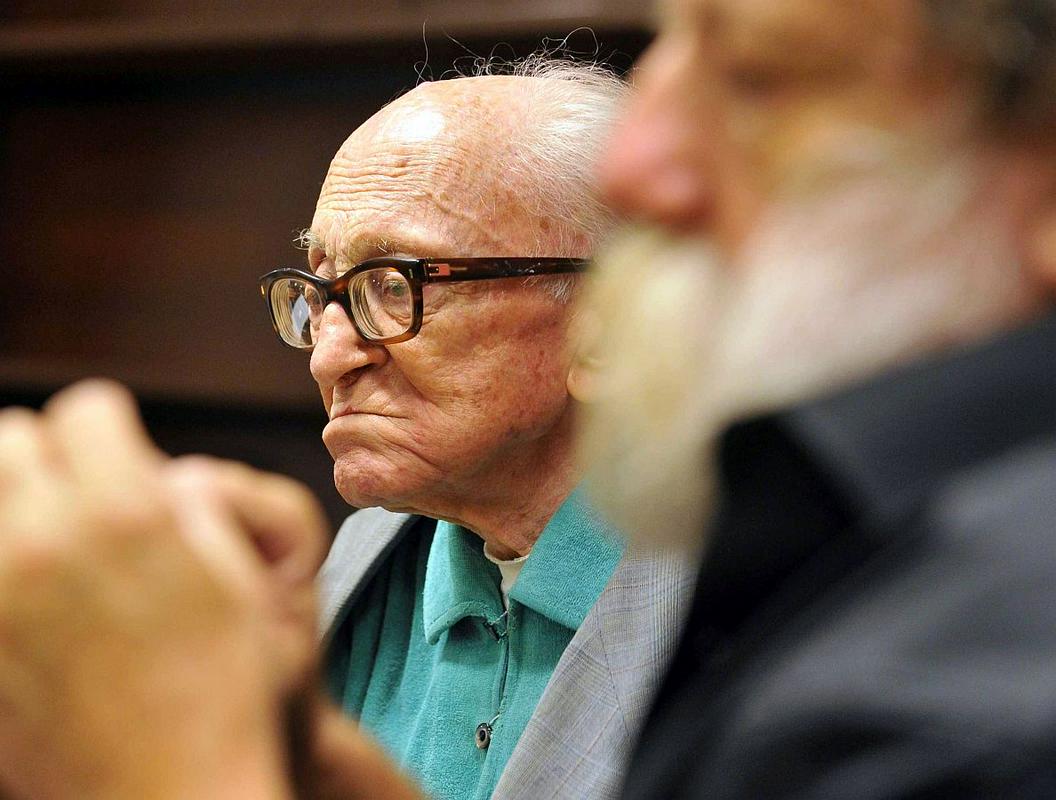
The Croatian cultural public, and also the Slovenians living in Croatia, were eagerly waiting for him. He spoke of the significance of minorities, the estrangement of Ljubljana from Slovenians living abroad, and of relations between Slovenia and Croatia.
The academician Boris Pahor from Trieste, writer from the community of Slovenian minority in Italy, at the occasion of his appearance in the Slovenian home in Zagreb on Wednesday spoke about his rich personal history, and shared some of his thoughts. Among other topics he dwelled on his disappointment with the attitude of the Slovenian capital Ljubljana towards Slovenians living on the other side of the border, and in other parts of the world.
Pahor, who was profoundly influenced by his concentration camp experience which he had also described in his works, at the occasion of his visit to Zagreb emphasized that fascism had started even before 1920, when the National House in Trieste was burnt down. He witnessed the event as a seven-year-old boy, and the experience had profoundly marked his life, and his literature.
He had been recognized as an important writer first in Italy and in France, the recognition of Slovenia came only later.
Pahor who will celebrate his 102 birthday in August of this year criticized the attitude of Ljubljana towards Slovenians living across the border: "Ljubljana as the capital of Slovenia is a cipher. It gives something to aid culture, thank you very much, but it is not aware that a part of Slovenian people living across the border constitute a part of the Slovenian destiny." "Ljubljana possesses no national feeling, except at football matches; then they carry around flags, and shout," he added.
In his opinion Slovenia has a history which is also European history, but Slovenians are not aware of that part of history. They keep distancing themselves from it by repeatedly emphasizing the smallness of the nation. In his opinion in the global world the importance of the homeland must be emphasized. You must have your own homeland; only than you can start claiming the world as your homeland. In the opposite case you lose your worth, he believes.
Patriotism and nationalism are not one and the same thing
He explained that national feeling started gaining strength with the occurrence of romanticism, with respect of one's essence, language, culture, tradition, and nation, while nationalism came with fascism and Nazism.
Dictatorship of capitalism
As opponent of all totalitarian systems, like fascism, Nazism, and communism, he said that the fourth dictatorship, capitalism, persevered. In his opinion the Soviet model of communism destroyed socialism as the idea which might have opposed capitalism.
He spoke in favour of the Scandinavian model of the social state in which the agreement exists between employers, unions, and the state. He explained that within such a model capital could be turned unhindered, workers would earn enough for a normal life, and state would be able to provide health care, education, and everything else required.
Pahor's most important novel Necropolis about his time in the Nazi concentration camps was translated into the Croatian language in 2012.
A. J.


































































